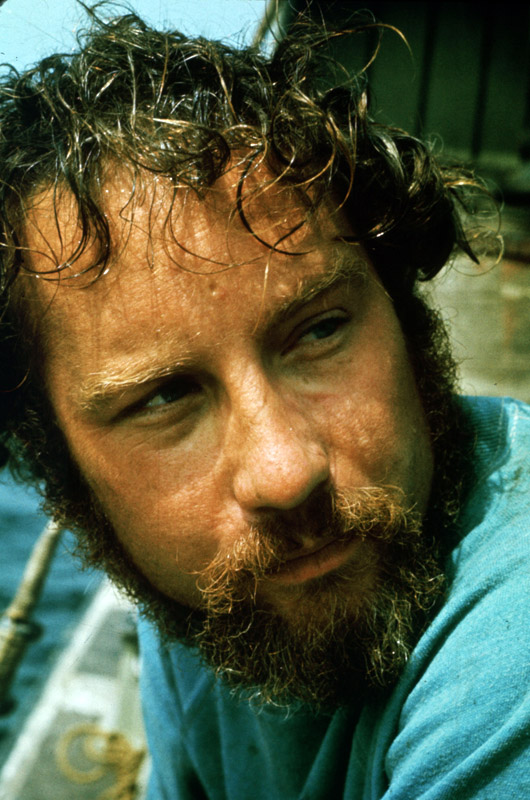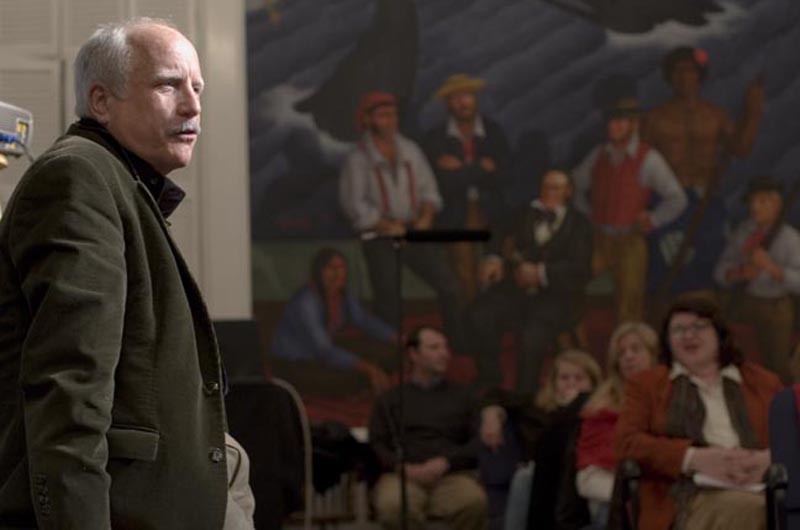This article was first published in the June 3, 2005 edition of the Amity Gazette, which was created by the Vineyard Gazette in honor of the 30th anniversary of Jaws' release in theatres.
When Dr. Matt Hooper last saw Amity, it was from the deck of the ferry as it sailed toward the mainland. As he remembers it, the day was cloudy and unusually cold for late July, with a strong breeze kicking up from the east. As the ship left port and headed out to sea, the Island looked peaceful, possessing a certain tranquility under a darkening sky.
And that is just how he wants to remember it.
"To be honest, I try not to think about it," Mr. Hooper said last week from his home in Indiana. "I haven't been back, and I am not ready to go yet. I may never be ready. But seeing the Island calm, quiet and with some sense of hope is how I am choosing to remember it."
That was 30 years ago, in the summer of 1975, and memories of that terrifying time still linger for Mr. Hooper. Forever remembered on the Island as one of "the Big Three" (along with Captain Quint and former Amity chief of police Martin Brody, who killed the great white shark that terrorized the community that summer), the former marine biologist is now living a quiet, land-locked life as a farmer in the Midwest. In his first interview since that summer, Mr. Hooper told the Gazette of his decision to pursue a life off the water.
"My life hasn't been the same, that is for sure," he said. "When I think of it, I think of Quint, and how he seemed almost destined to die in that shark's jaws. One of us - if not all of us - was going to end up at the bottom of the ocean, and for the longest time I couldn't escape thinking it should have been me.
"The great white shark, carcharodon carcharias, is a perfect eating machine," he continued. "What Martin and Quint and I went up against was a magnification of that. Sometimes I wake up and wonder why I am still alive."
Indeed, for Mr. Hooper, who is now 66, life hasn’t been the same. Suffering from what he describes as survivor's guilt, Mr. Hooper spent several more years on the ocean, bouncing around the globe on various research vessels. But the realities of that summer on Amity eventually caught up to him.
"Some things you can't hide from no matter how much you try to face them," he said.
Mr. Hooper retreated to his cousin's farm in Indiana, and soon began working the fields and learning about soy bean cultivation. When his cousin died in 1986, he and his wife, Elizabeth, took over the 300-acre farm. He has been working the land ever since.
"I didn't run, and I didn't hide, and I couldn't get away from it. So I came here," he said, adding: "Soy beans don't bite."
Mr. Hooper said one of his biggest regrets is not reaching out to the Brody family, which was terrorized by sharks into the late eighties. He said he lost touch with the Brodys about 25 years ago.
And as for his tense relationship with Captain Quint?
"Quint didn't let anyone in, certainly not some college boy, as I think he called me," he says with a curt laugh. "He was fighting his own demons all the time, and in the end, his demons won."
Despite his absence, Mr. Hooper’s legacy on Amity remains. The Hooper Institute of Marine Wildlife, a nonprofit organization named in his honor, teaches children about the mysteries of the ocean; it is going into its 26th year.
"That’s a nice honor, but I hope they are also teaching those kids how dangerous going into the water really can be," he said. "I certainly don’t feel safe going back into the ocean."
Mr. Hooper said he plans to live out the rest of his life on his farm, and would consider revisiting this small Atlantic outpost on only one condition:
"I'll come when they build a bridge," he said.









Comments (1)
Comments
Comment policy »